13, August 2023
Pope Francis prays for peace in Cameroon 0
During Sunday’s Angelus, the Holy Father Pope Francis prayed for dialogue and peace in Cameroon.
In his greetings following the recitation of Sunday’s Angelus, Pope Francis revealed that tomorrow on the eve of the Solemnity of the Assumption of the Blessed Virgin Mary, a peace pilgrimage will take place in Bafoussam, Cameroon, a nation still suffering from violence and war.
“Let us join in prayer with our brothers and sisters in Cameroon so that, through the intercession of the Blessed Virgin Mary, God may sustain the hope of the people who have been suffering for years and open ways of dialogue to reach harmony and peace” the Holy Father said.
At the same time, the Pope asked everyone to continue to pray for the battered nation of Ukraine, suffering greatly due to the war.
Source: Vatican News

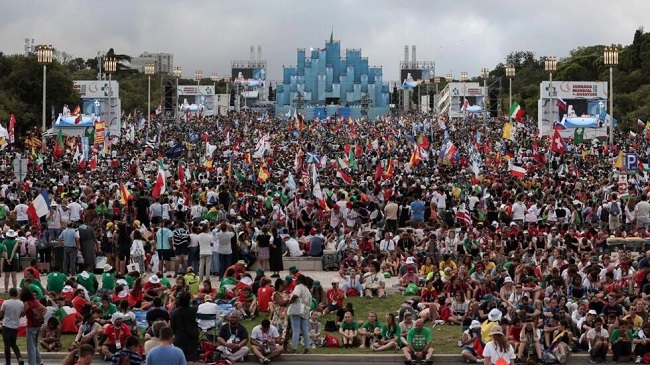
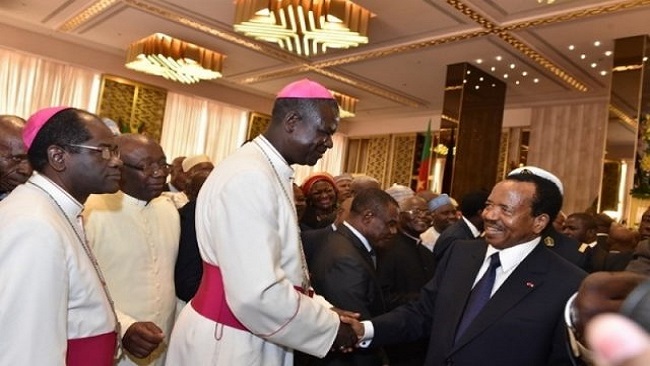
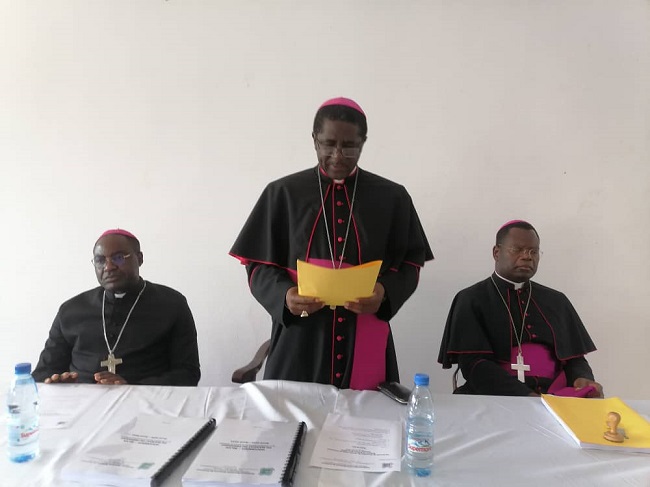
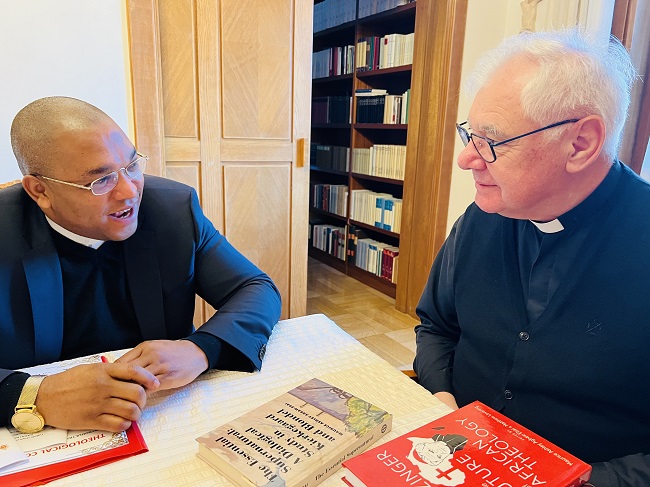
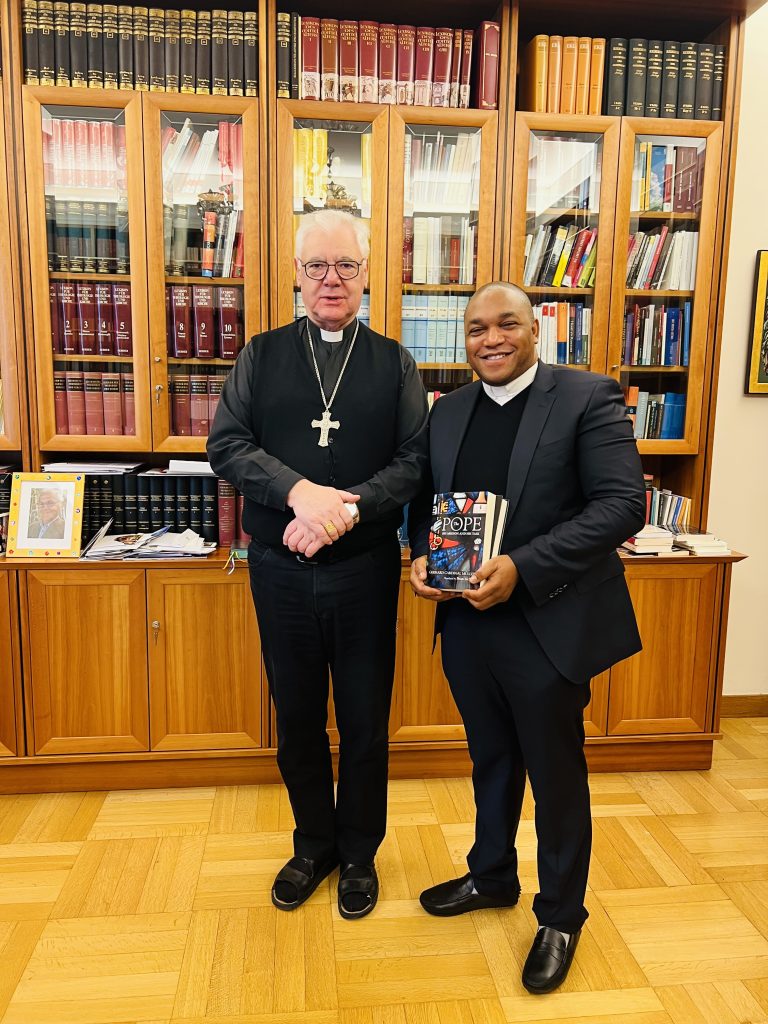
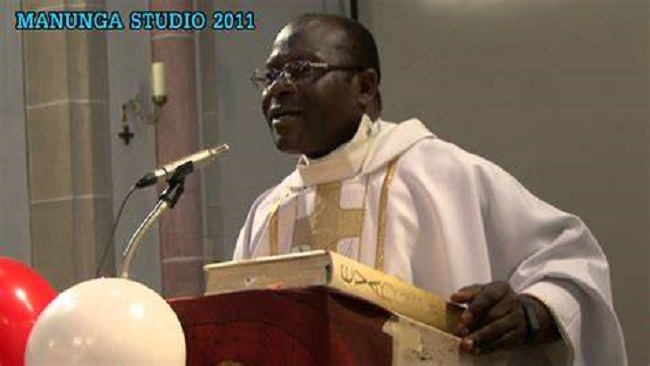



















14, August 2023
What Difference Does Jesus Christ Make? (Part Three) 0
We ended our previous section by pointing out that human brokenness, or existential wretchedness, could often time serve as the raw material thanks to which the need for God enters into the drama of human existence. As disheartening as the state of sin is, when we have the courage to turn to God, human sinfulness becomes a graced opportunity of encounter from which good fruits, such as patience with the faults of others; tolerance; a more understanding heart; a more God-like charity, the discovery of my dependence on God; et cetera, could ensure. Additionally, we pointed out that even from the midst of human misery, suffering and sin, God is never out of the picture, for the grace of the light of faith is enriched by the grace of the light of glory, albeit that, like Moses, we can only see God’s back and not his Face – that which we would have really loved to see!
As we intimated, the request for Moses to see the Face of God persisted throughout Israel’s history: It is your Face O Lord that I seek, do not hide your Face from me (Psalm 27:8-9). Moses’ quest remained unfulfilled and was kept as a promise of hope, hope for a future in which the greatest longing of the human heart would ultimately be met, in spite of human brokenness. In the Christian tradition, this sense of hope borne from the longing for God, what St Benedict referred to as the Quaerere Deum, has often resulted opening up a new perspective in terms of how we see the human being and the drama of sin in human existence. Augustine of Hippo captured this sense of hope borne from the midst of human sinfulness when he declares in his characteristic quotable fashion: every saint had a past; and every sinner has a future. In effect, the silver lining in my sinfulness is the hope that I can become different. I can become better. I can start all over at any point in time. The Lord is continuously calling me and never gives up on me to come work in his vineyard (Matthew 20:1-16). In the final analysis, Christian hope reminds me that even my best can become better in Christ Jesus the Lord.
Returning to the figure of Moses, in Deuteronomy 18:15, we read: A prophet like me will the Lord, your God, raise up for you from among your own kindred; that is the one to whom you shall listen. And again, we read: I will raise up for them a prophet like you from among their kindred and will put my words into the mouth of the prophet; the prophet shall tell them all that I command. (Deuteronomy 18:17). As Ratzinger explains, a curious melancholy hangs over the conclusion of the Book of Deuteronomy: “The promise concerning ‘a prophet like me’ has not yet been fulfilled. And it now becomes clear that these words do not refer simply to the institution of prophecy, which in fact already existed, but to something different and far greater: the announcement of a new Moses. It had become evident that taking possession of the land in Palestine did not constitute the chosen people’s entry into salvation; that Israel was still awaiting its real liberation; that an even more radical kind of exodus was necessary, one that called for a new Moses.” (Ratzinger, Jesus of Nazareth, Vol. 1, p. 3). In effect, what is outstanding and enduring about the figure of Moses are not the mighty deeds performed, curial as these were to Israel’s liberation. What serves as the capstone of the life of Moses was him pointing to the face of God as that which ultimately meets the desires of the human heart, that which finally resolves the wedge between willing and willed, between desire and fulfillment, as explained by Maurice Blondel in his philosophy of human action.
In this light, the Deuteronomistic Promise thereby opens the door to the leitmotif of a new Moses that would finally unveil the Face of God to the world, bringing to realization the greatest longing of the human heart. This is the unfinished business of Moses that the new Moses had to accomplish. As Ratzinger again explains, “Israel is allowed to hope for a new Moses, who has yet to appear, but who will be raised up at the appropriate hour. And the characteristic of this ‘prophet’ will be that he converses with God face-to-face, as a friend does with a friend. His distinguishing note will be his immediate relation with God, which enables him to communicate God’s will and word firsthand and unadulterated. And that is the saving intervention which Israel – indeed, the whole of humanity – is waiting for.” (Ratzinger/Benedict XVI, Jesus of Nazareth, Vol. I, 5). In this life, Moses, and together with him the faith of Israel, can only go so far, as far as seeing the back of God (Exodus 33:23). But as we pointed out in part two of this series, the human heart is not contented with the back of God. The human heart wants more. And herein arises the need for a new Moses.
This figure of a new Moses, thereby, sets the stage for that is genuinely novel and consummating, for the meeting of the more of the human heart. Anything less would not satisfy the greatest aspirations of the human heart. In this light, the new Moses must therefore be granted what was denied the first, if this new Moses is to resolve the impasse that characterizes human existence, the distraught that continues to mark human life. The new Moses must therefore be greater than the first Moses, capable of going beyond the back of God to the face of God. As Ratzinger further teaches, “this is the context in which we need to read the conclusion of the Prologue to John’s Gospel: ‘No one has ever seen God; it is the only Son, who is nearest to the Father’s heart, who has made him known’ (John 1:18). It is in Jesus that the promise of the new prophet is fulfilled. What was true of Moses only in fragmentary form has now been fully realized in the person of Jesus: He lives before the face of God, not just as a friend, but as a Son; he lives in the most intimate unity with the Father” (Ratzinger/Benedict XVI, Jesus of Nazareth, 6).
At this point, it becomes obvious that the event of the Transfiguration as recorded in Mathew 17:1-13, take on a much more profound meaning for the Christian. While it is true that Jesus obviously wanted to strengthen the resolve of the apostles before the scandal of the Passion, it is likewise true, and even more so, that with the event of the Transfiguration especially when read via Jewish hermeneutics as embodied in the figures of Moses and Elijah, we are dealing with the zenith of Israel’s religious struggle, and hopefully, ours as well. (To be continued).
By Maurice Agbaw-Ebai